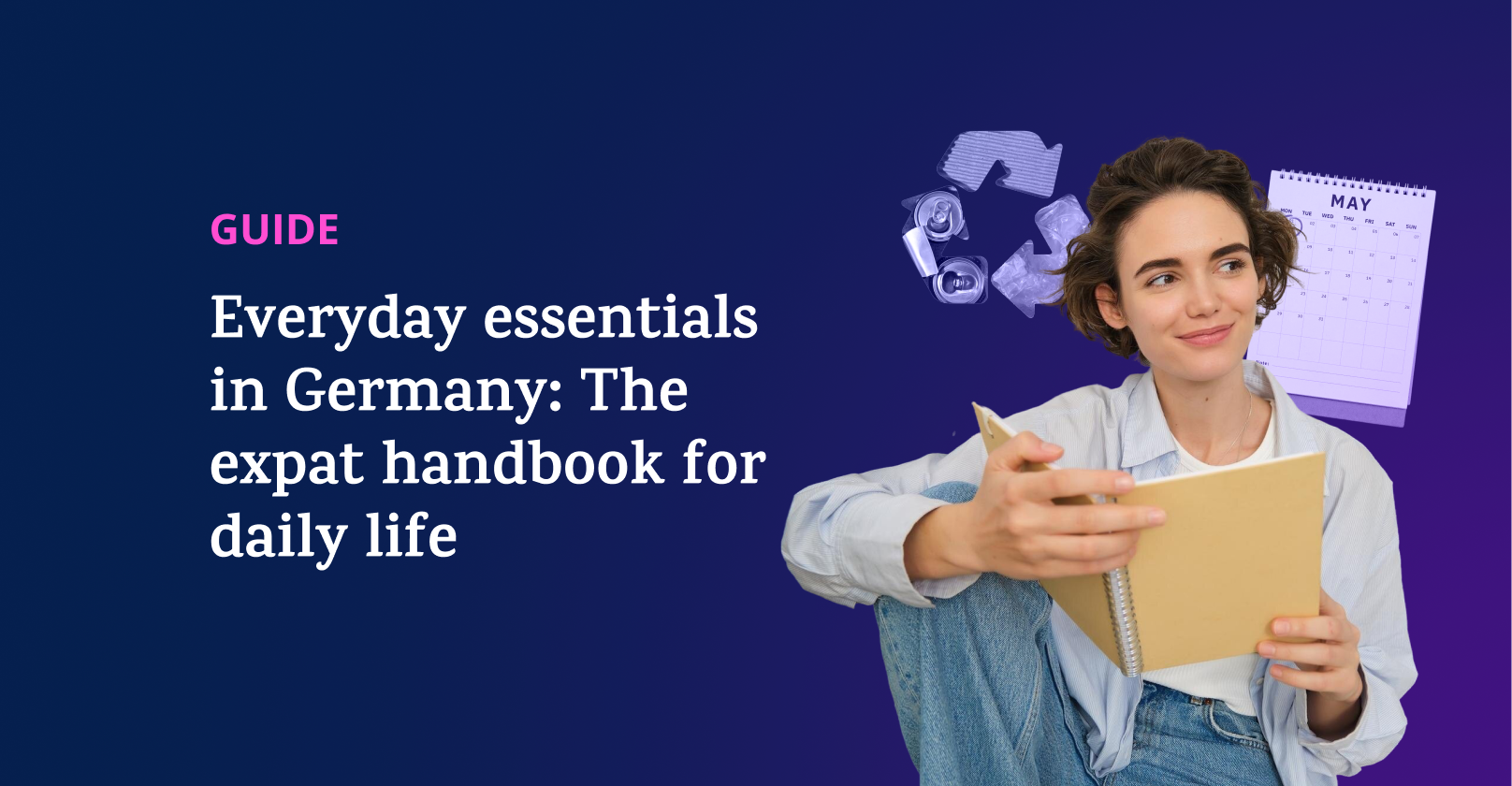Healthcare in Germany for expats: Insurance, doctors and phrases you’ll actually need
New country, new rules… and yes, a whole new healthcare system to decode!
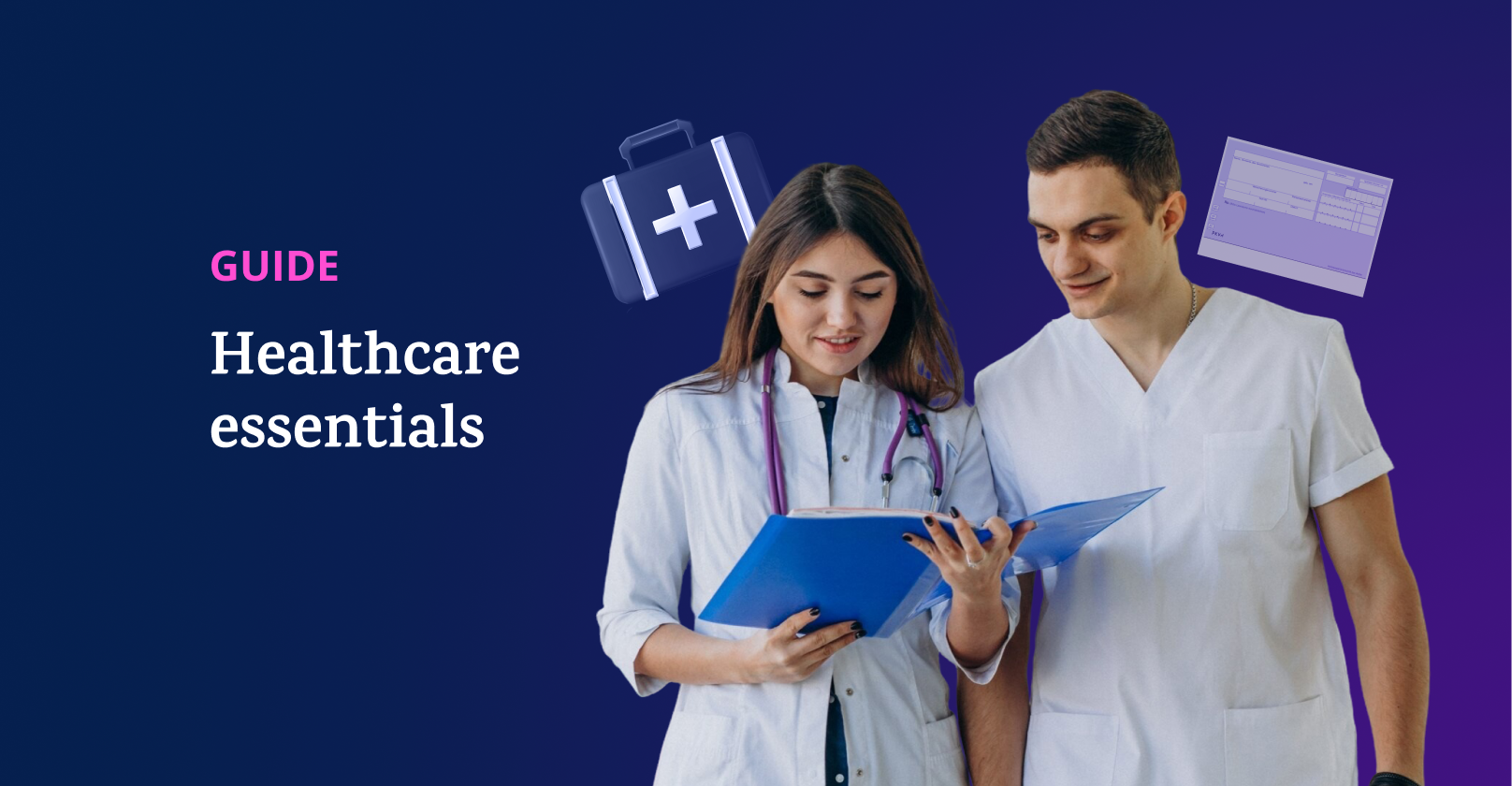
Don’t worry—this guide is your trusty compass through the lands of insurances, doctor appointments, pharmacies, hospitals, specialized care, preventive care, and the ever-charming world of Kur culture. Ready to feel like a healthcare pro? Let’s get started.
- How healthcare works in Germany
- Health-insurance basics for expats
- Going to the doctor in Germany
- Pharmacies in Germany (‘Apotheken’)
- Hospitals and specialized care
- Preventive and routine care
- Cultural health norms expats should know
- Handy tips and resources for expats
- FAQs
How healthcare works in Germany
In short: Health insurance is mandatory in Germany. No exceptions. Everyone must be covered by either public insurance (gesetzliche Krankenversicherung) or private insurance (private Krankenversicherung).
In Germany, health insurance (Krankenversicherung) isn’t optional — it’s the law. Everyone residing in Germany must be insured under one of two systems:
- The public option, Gesetzliche Krankenversicherung (GKV)
- The private option, Private Krankenversicherung (PKV)
Most residents — especially those with incomes below a certain threshold — opt for the public system. Higher earners, freelancers and certain professionals may find private insurance a better or more cost-efficient option.
Both systems guarantee access to doctors, hospitals and pharmacies. But they differ in a few key ways, from who qualifies to how you pay to how quickly you can book an appointment.
Confused yet? To use an apt analogy, it’s a bit like Oktoberfest. Everyone’s welcome to the party, but you’ll have a different experience depending on whether you sit at the big communal tables (public) or in the VIP tent (private). And either way, you can’t get in without your Versicherungskarte (insurance card).
| Vocabulary box | |
| die Krankenversicherung | health insurance |
| die gesetzliche Krankenversicherung (GKV) | statutory/public health insurance |
| die private Krankenversicherung (PKV) | private health insurance |
| die Versicherungskarte | insurance card |
The two systems (GKV vs. PKV)
In short: Germany’s healthcare system has two main options. The public option (GKV) is income-based and covers most people. The private option (PKV) is premium-based and often used by freelancers or high earners.
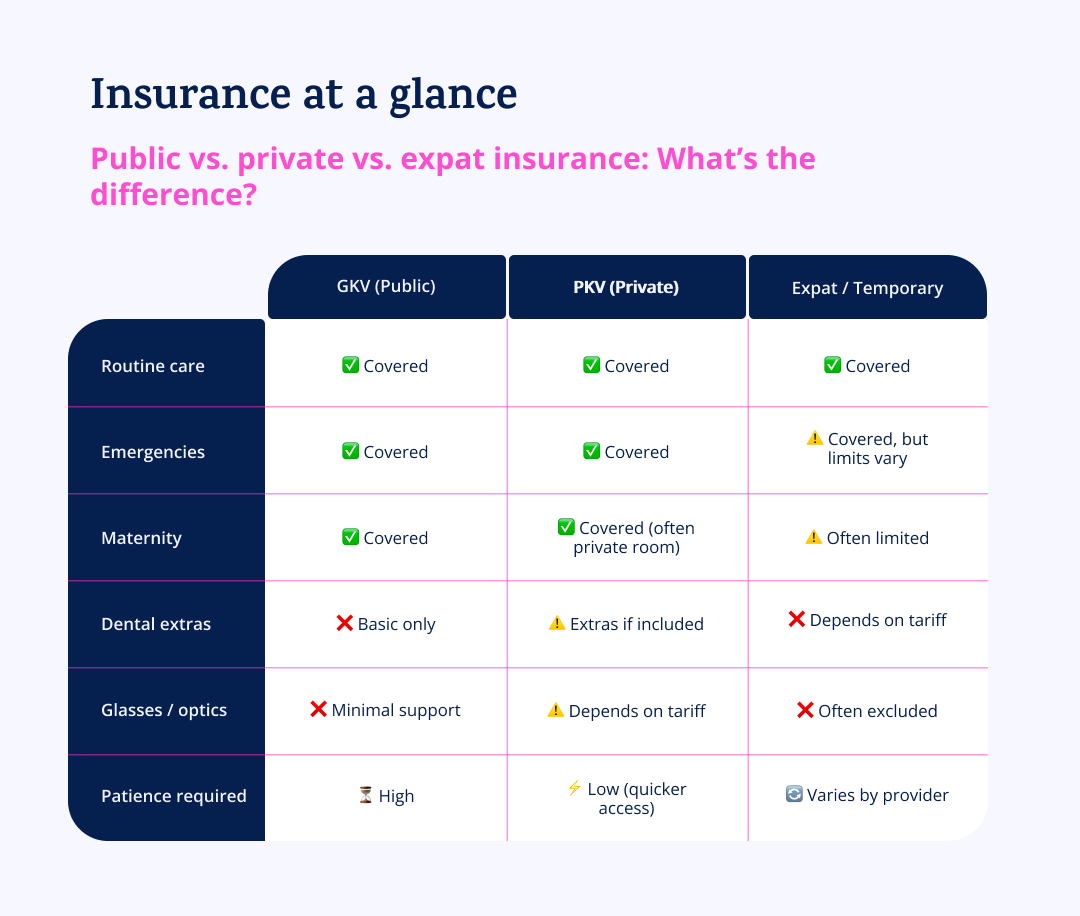
Germany’s healthcare system runs on two main tracks:
- Public insurance (gesetzliche Krankenversicherung, or GKV)
- Private insurance (private Krankenversicherung, or PKV)
Which path you take isn’t entirely up to you — it may depend on your job type, income level and sometimes even your student status.
Who qualifies
Employees earning under the annual threshold (about €73,800/year in 2025) are automatically enrolled in GKV.
- If you earn above that threshold, you can opt out and join PKV.
- Freelancers and self-employed individuals often end up in PKV, since public insurers can be picky about accepting them.
- Students are usually placed in GKV by default, unless they proactively switch to private coverage at the start of their studies.
Choosing between GKV and PKV is a bit like using dating apps. Public is reliable but sometimes slow to reply, while private looks glamorous but may come with a few quirks and hidden costs.
At a glance: Key differences
| GVK (Public) | PVK (Private) | |
| Costs | Based on income (approx. 14.6% + small surcharge); dependents included for free | Based on age, health and benefits; can rise steeply over time |
| Coverage | Standard care, preventive check-ups, maternity, most prescriptions | More flexible; may include private rooms, shorter wait times and alternative treatments |
| Wait times | Longer for non-urgent care | Shorter; priority access |
| Vocabulary box | |
| die Einkommensgrenze | income threshold |
| selbstständig | self-employed |
| die Wartezeit | waiting time (for appointments) |
What’s covered and what’s not
In short: Both public and private insurance cover essential healthcare. The difference shows up in extras — dental, vision and special treatments.
Both GKV (public) and PKV (private) cover the essentials:
- Routine doctor visits
- Hospital emergencies
- Maternity care
- Most prescriptions
The basics are safe and predictable. You won’t be left uncovered if you break a bone, go in for surgery or require standard treatment.
Where they differ is in the extras: dental, vision and elective treatments.
Dental
- GKV covers most dental treatments, including routine check-ups, preventive cleanings (at least partially) and simple fillings. Non-standard and/or complex treatments — like crowns, bridges, implants or orthodontics — may not be covered or may be only partly reimbursed.
- PKV, depending on the tariff, may cover a much larger share of the cost for non-standard care — sometimes even 100%.
- Many people in the public system opt for a Zusatzversicherung (supplementary dental insurance) for additional dental coverage.
Glasses and optics
- GKV only covers vision aids in very limited cases — usually for children or in cases of severe impairment.
- PKV may include optical coverage, depending on the plan.
- For adults, glasses are usually out-of-pocket unless you have private or supplemental coverage.
Other extras
- GKV may include additional perks such as professional dental cleanings, osteopathy or contributions toward IVF treatments. These vary between providers, so it’s worth checking carefully before you commit.
Do I need extra insurance for dental care?
Yes, if you want to avoid hefty bills for crowns, implants or orthodontics. Routine care is mostly covered, but more significant procedures are only partly reimbursed by GKV. PKV may cover more, but the details depend heavily on your chosen tariff.
| GKV | PKV | Expat/temporary insurance | |
| Routine care | ✅ Covered | ✅ Covered | ✅ Usually covered, but check insurance |
| Emergencies | ✅ Covered | ✅ Covered | ⚠️ Covered, but check limits |
| Maternity | ✅ Covered | ✅ Covered (sometimes with a private room) | ⚠️ Often limited |
| Dental extras | ❌ Basic only | ⚠️ Extras if included in plan | ❌ Depends on tariff |
| Glasses/optics | ❌ Minimal support | ⚠️ Depends on tariff | ❌ Often excluded |
| Patience required | High | Low (quicker access) | Depends on provider |
| Vocabulary box | |
| die Zusatzversicherung | supplementary insurance |
| das Wartezimmer | waiting room |
| der Zusatzbeitrag | additional contribution fee |
Health-insurance basics for expats
Health insurance is mandatory in Germany from the very first day of residence. Think of it as your entry ticket to the healthcare system: no insurance, no treatment (and no visa).
Whether you’re employed, self-employed, studying or job-seeking, the system assigns you a path. You just have to know which one fits.
| Vocabulary box | |
| die Krankenversicherungspflicht | supplementary insurance |
| die Studentenversicherung | student health insurance |
Enrollment by category
In short: How you enroll depends on your status — employee, freelancer, student or jobseeker.
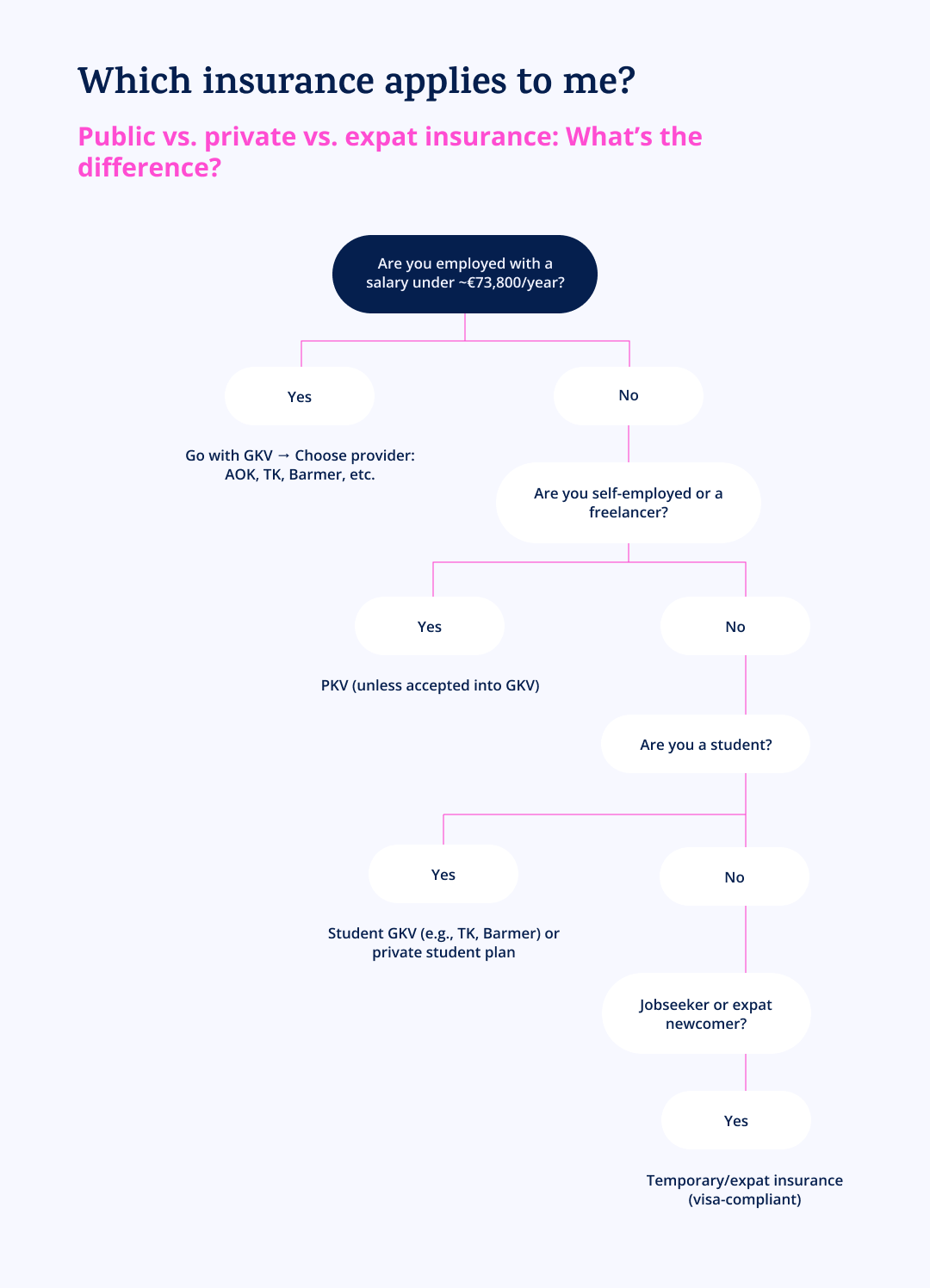
Your enrollment path depends on what brought you to Germany.
- Employees: Enrollment is automatic through your employer. Your contributions are deducted directly from your paycheck — less paperwork, more peace of mind.
- Freelancers: You apply yourself. Joining GKV can feel like applying to Harvard or Hogwarts — not everyone gets in. Many end up in PKV (private insurance) instead.
- Students: Most are eligible for discounted Studenten-GKV plans. Private options exist, but switching back into GKV can be tricky.
- Jobseekers: If you’re in Germany without a job yet, visa-compliant short-term plans (Incoming-Versicherung) bridge the gap until you land employment or regular residence.
Switching insurers
First, the good news: in Germany, you can switch health insurers. But the process — and the possibilities — depend on which system you’re in.

Within GKV
Moving from one public provider (like TK, AOK or Barmer) to another is relatively straightforward after 12 months. If your insurer raises your Zusatzbeitrag (additional premium), you can change earlier without penalty. Many people switch for perks like bonus programs, free dental cleanings or better digital tools.
From GKV to PKV
Switching is possible if you earn above €69,300 (in 2025), are self-employed or fit certain student categories. For freelancers and high earners, private insurance can offer perks like faster specialist access, private hospital rooms or extended coverage options.
The reverse (PKV back to GKV)
Here’s the catch: once you’re in PKV, returning to GKV is extremely difficult. In most cases, you can only rejoin public insurance if your income drops below the threshold before you turn 55. After that, GKV is essentially closed off to you.
Switching back to GKV once you go private? It’s about as easy as un-baking a cake — theoretically imaginable, but practically impossible.
Quick tips
- Employees: It’s easy to move between GKV providers, but harder to go back once you’ve opted into PKV.
- Freelancers/self-employed: You’re usually stuck with PKV once you choose it.
- Students: Once you waive GKV and go private, you can’t switch back during your studies.
| Vocabulary box | |
| Krankenkasse wechseln | switch health insurers |
| das Wechselrecht | right to switch |
Major providers
Among Germany’s biggest public insurers are AOK, TK and Barmer. They all provide the same legally required core benefits, though they may differ in extra services, digital tools and customer support.
- AOK (Allgemeine Ortskrankenkasse): Known as the local people’s insurer, with a wide branch network and approachable service.
- TK (Techniker Krankenkasse): Popular with younger expats for its strong digital app, English-language support and broad coverage extras.
- Barmer: A large, traditional insurer that often appeals to employees and families, offering solid prevention programs.
| Vocabulary box | |
| die Krankenkasse | health-insurance provider |
| die Zweige | branches (local offices) |
| der Versicherungsnehmer | policy holder |
Going to the doctor in Germany
In short: Your Hausarzt (general practitioner) is your main go-to for everyday health concerns. They are your first stop for check-ups, prescriptions and referrals to specialists.
A Hausarzt not only handles routine check-ups and minor illnesses. They also keep track of your medical history, help you get appointments more quickly and make sure your costs are covered under GKV.
They’re basically bouncers to the healthcare club. Want to see a cardiologist, dermatologist or orthopedist? You may need the Hausarzt stamp of approval first.
How referrals work
For most specialist visits covered by GKV, your Hausarzt must provide an Überweisung (referral). PKV patients sometimes bypass this, but an Überweisung can still be useful for advice and documentation.
| Vocabulary box | |
| der Hausarzt | general practitioner (GP) |
| die Überweisung | referral |
| das Krankenhaus | hospital |
| die Praxis | practice |
Finding and registering with a GP
Finding a GP in a big German city can be tricky. Think of it like flat-hunting. Ask neighbors or expat groups, check your insurer’s website, and keep calling until you find someone taking new patients.
Don’t be discouraged if your first few attempts fail.
Booking appointments
Every practice runs a bit differently. Some stick to phone calls, while others may prefer online platforms or practice-specific apps (Praxis-Apps).
GKV patients sometimes face longer waits, while PKV patients usually get faster slots.
Fun fact: There’s still no centralized digital health record in Germany. This means that when you visit a new doctor, they can’t automatically access your files from previous practices. However, Germany is currently rolling out the E-Akte, an electronic patient file that will eventually let doctors view your medical history digitally.
For a smooth visit to the Praxis:
- Bring your insurance card (Versicherungskarte), ID or passport, and any prescriptions (Rezepte) or prior medical documents — without these, you're basically invisible to the system.
- Book early.
- Be punctual.
Note: Since 2024, prescriptions are fully digital (E-Rezept). You can access them via your eGK card, the Das E-Rezept app or a QR code from your doctor.
| Vocabulary box | |
| das Rezept | prescription |
| der Termin | appointment |
Overcoming the language barrier
If your German isn’t great, don’t stress. Many expats wonder: Can I bring a translator? The answer is yes — and it’s often a good idea if you don’t feel your language skills are sufficient. Of course, having a few key phrases ready can help a lot:
- Ich möchte einen Termin vereinbaren. → I’d like to make an appointment.
- Ich habe einen Termin beim Arzt. → I have an appointment with the doctor.
- Ich habe Kopfschmerzen/Halsschmerzen/Fieber. → I have a headache/sore throat/fever.
- Mir ist schwindelig/übel. → I feel dizzy/nauseous.
- Brauche ich ein Rezept? → Do I need a prescription?
- Wie oft soll ich das Medikament nehmen? → How often should I take the medication?
Other German phrases you may hear at the doctor's office:
- Haben Sie Beschwerden? → Do you have symptoms?
- Seit wann haben Sie Beschwerden? → How long have you had symptoms?
- Nehmen Sie Medikamente? → Are you taking any medications?
- Bitte tief einatmen. → Please take a deep breath.
- Folgen Sie mir bitte ins Behandlungszimmer. → Please follow me into the treatment room.
As an expat, you can try:
- Searching for English-speaking doctors (Englischsprachige Ärzte)
- Bringing a bilingual friend or professional translator
- Preparing key phrases or symptom descriptions in both German and English to make explanations quicker and clearer
- Having your prior medical records on hand
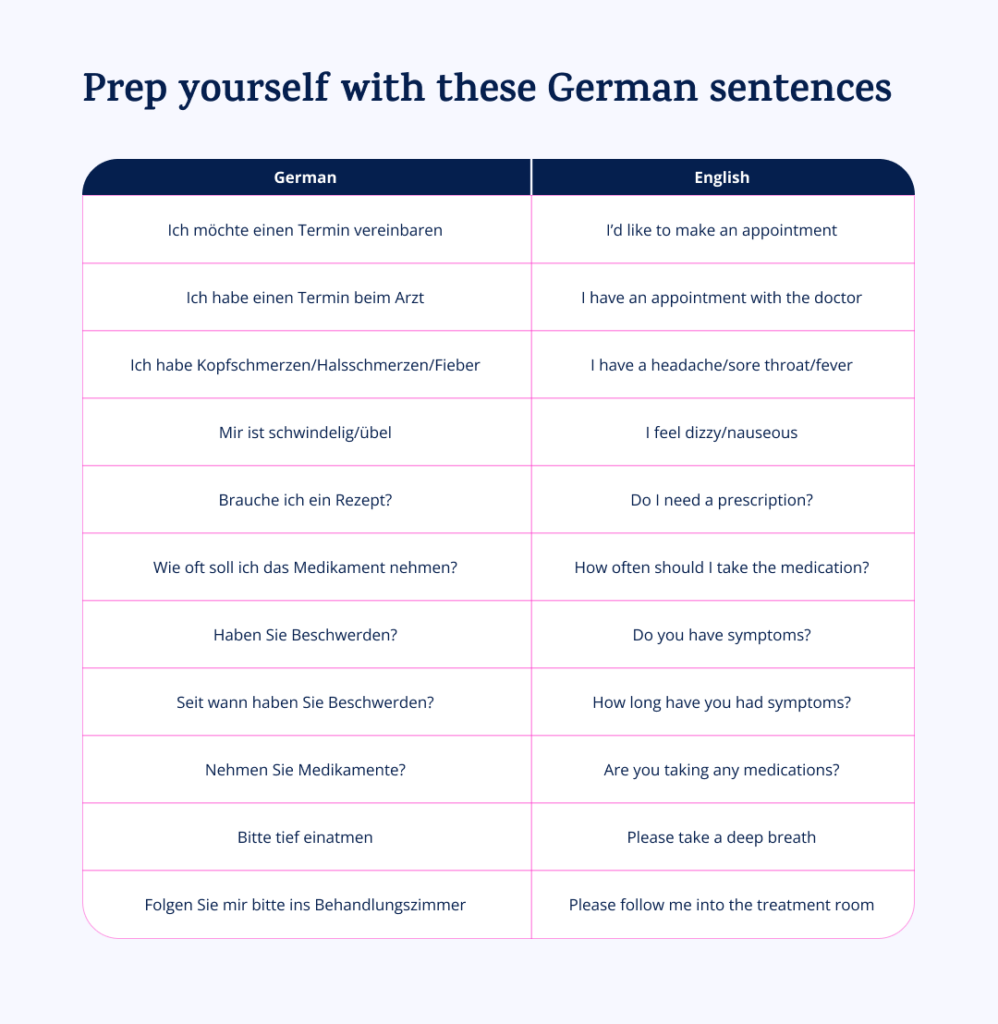
Pro tip: Even a few well-prepared phrases can make the difference between a calm visit and accidentally signing up for procedures you didn’t plan for.
| Vocabulary box | |
| die Beschwerden | symptoms |
| das Behandlungszimmer | treatment/exam room |
| die englischsprachige Ärzte | English-speaking doctors |
First visit checklist
Your first doctor visit in Germany will go more smoothly if you come prepared.
Documents to bring
- Insurance card (Versicherungskarte)
- ID or passport (Pass)
- Past prescriptions (Rezepte) and any relevant medical records
- Medication list if you take regular medicines
- Referral (Überweisung) if you need a specialist
Step-by-step at your first visit
- Check in at reception → Hand over your insurance card and ID.
- Fill out patient forms → List your medical history, allergies and any current medications.
- Consultation → Discuss your symptoms, past treatments and any questions you may have.
- Examination → This includes a routine check, vitals or other tests as needed.
- Prescriptions/referrals → You’ll get any necessary medication or a referral.
- Follow-up → Schedule your next visit if needed.
Pro tip: Keep a small folder or app with digital copies of your medical records. This saves time if you change doctors.
Emergencies vs. routine care
In Germany, knowing which number to call in a medical situation can save crucial time:
- 112 for life-threatening emergencies
- 116117 for urgent care outside regular office hours.
| Number | Purpose | Notes |
| 112 (Notaufnahme) | Life-threatening emergencies | Used for: severe chest pain, major trauma, heavy bleeding, unconsciousness, etc. Ambulance dispatched immediately |
| 116117 | Urgent care; after-hours GP | Used for: fever with discomfort, minor injuriesCan connect you to an on-call doctor or urgent care clinic |
Pro tip: Keep both numbers in your phone and near your documents — emergencies aren’t the time to rely on Google.
| Vocabulary box | |
| die Notaufnahme | emergency room/ER |
| der Rettungsdienst | ambulance/emergency service |
Pharmacies in Germany (‘Apotheken’)
Pharmacies (Apotheken) in Germany sell both prescription medicines (verschreibungspflichtige Medikamente) and over-the-counter drugs (apothekenpflichtige Medikamente).
How they work
- Prescription medicines: Bring your doctor’s prescription (and your insurance card!) to receive the medication.
- Over-the-counter (OTC) medicines: Some are available only in Apotheken, even if technically non-prescription.
- Supermarket vs. pharmacy: Supermarkets may stock mild ibuprofen or paracetamol, but for anything stronger, head to the Apotheke. Because German law treats stronger doses as semi-prescription medicines, the pharmacist is there to guide you safely.
Note: Pharmacists (Apotheker) can recommend alternatives, explain dosages and even give first-line treatment advice for minor ailments. Don’t hesitate to ask for help!
| Vocabulary box | |
| die Apotheke | pharmacy |
| das Medikament | medicine |
| die Symptome | symptoms |
Prescription types
In Germany, prescriptions come in a few different flavors, depending on your insurance and the type of medicine:
- Pink prescription (rosa Rezept) → For public insurance (GKV) patients. Most common for medications covered by your public plan.
- Blue prescription (blaues Rezept) → For private insurance (PKV) patients. Used for medicines billed directly to private plans.
- Electronic prescription (elektronisches Rezept) → Sent digitally via app or QR code. Increasingly common for both public and private patients.
Think of prescriptions like tiers of concert tickets: pink for the majority, blue for VIPs and digital for the tech-savvy crowd.
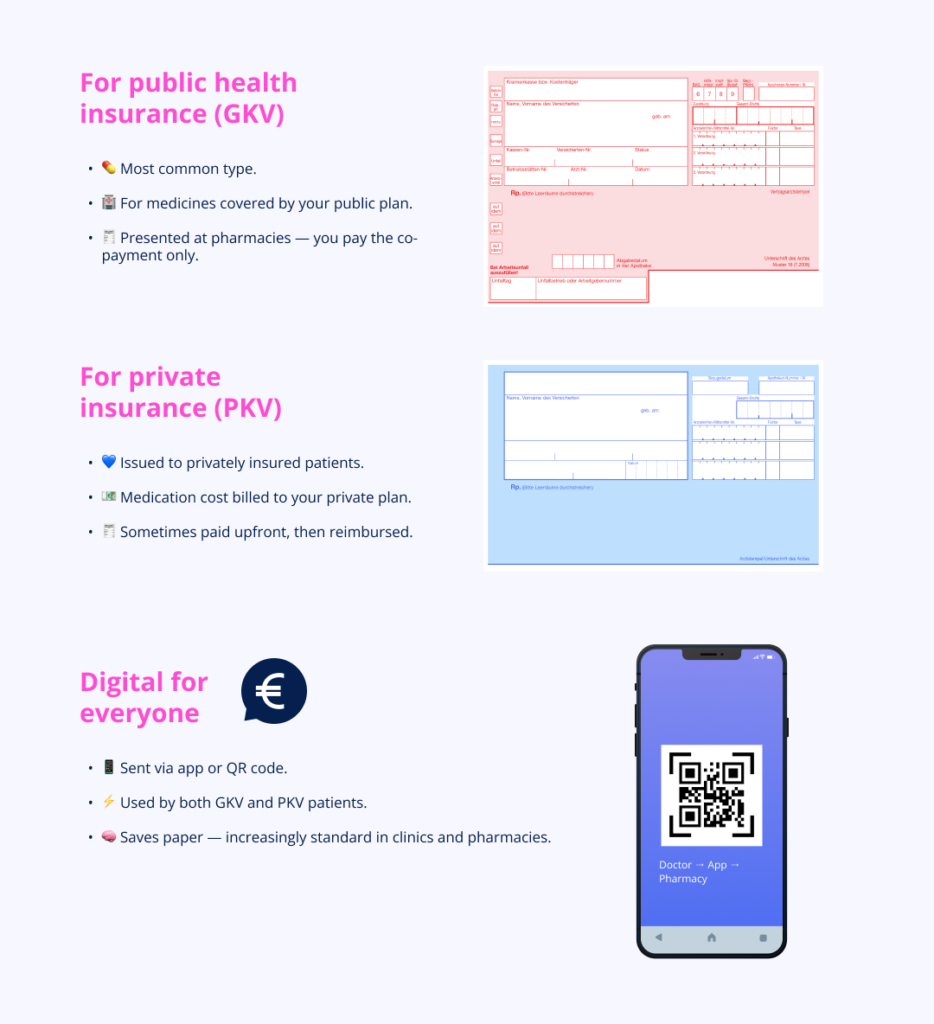
Language at the ‘Apotheke’
Visiting a German pharmacy can be tricky if your German isn’t strong. Practice with these simple phrases:
- Ich habe diese Symptome… → I have these symptoms…
- Haben Sie etwas gegen Husten/Fieber/Allergien? → Do you have something for cough/fever/allergies?
- Ich brauche dieses Medikament auf Rezept. → I need this medicine with a prescription.
- Können Sie mir erklären, wie ich das einnehme? → Can you explain how to take this?
If speaking in German doesn’t work:
- Point to the product if you’re unsure of the German name — pharmacists are no strangers to visual guidance.
- Bring a list of your symptoms or the English name of your medication.
Hospitals and specialized care
Germany offers a range of hospitals and specialized care facilities, from local clinics to advanced university centers. Knowing the type of hospital helps you better understand services, wait times and costs.
Hospital types
Hospitals in Germany come in three main “flavors”:
- Public (öffentliches Krankenhaus) → Efficient, widely available, usually covered fully by GKV.
- Private (privates Krankenhaus) → More comfort, shorter wait times, often chosen by PKV patients or those willing to pay extra. English-speaking staff may be easier to come by here.
- University (Universitätsklinikum) → Specializes in complex cases and research — expect trainee doctors.
Pro tip: University hospitals are ideal for rare or complex health issues. Always check if your insurance is accepted.
Coverage differences
Hospital coverage in Germany varies depending on whether you’re publicly or privately insured. Key differences include room type, waiting times and choice of doctor.
| GKV (Public) | PKV (Private) | |
| Room type | Usually shared | Often private |
| Wait times | Longer for non-urgent procedures | Typically shorter |
| Doctor choice | Assigned by the hospital | You can choose |
Pro tip: Confirm your coverage with your insurer before any hospital visit.
| Vocabulary box | |
| das Patientenzimmer | patient room |
| die Wartezeiten | waiting times |
| die Facharztwahl | choice of a specialist/doctor |
| der Privatpatient | private patient |
| gesetzlich versichert | publicly insured |
Maternity care
Maternity care in Germany is well-organized but comes with rules that may surprise expats. Midwives (Hebammen) play a central role, guiding prenatal check-ups, birth planning and postnatal care. Births can take place in hospitals, private clinics or specialized birth centers (Geburtszentren).
Many expecting parents only realize late in pregnancy that midwives book up fast, so early registration is key.
Insurance coverage:
- GKV (public) covers standard prenatal care, hospital delivery and basic midwife services.
- PKV (private) may include private rooms, extra home visits and prenatal classes.
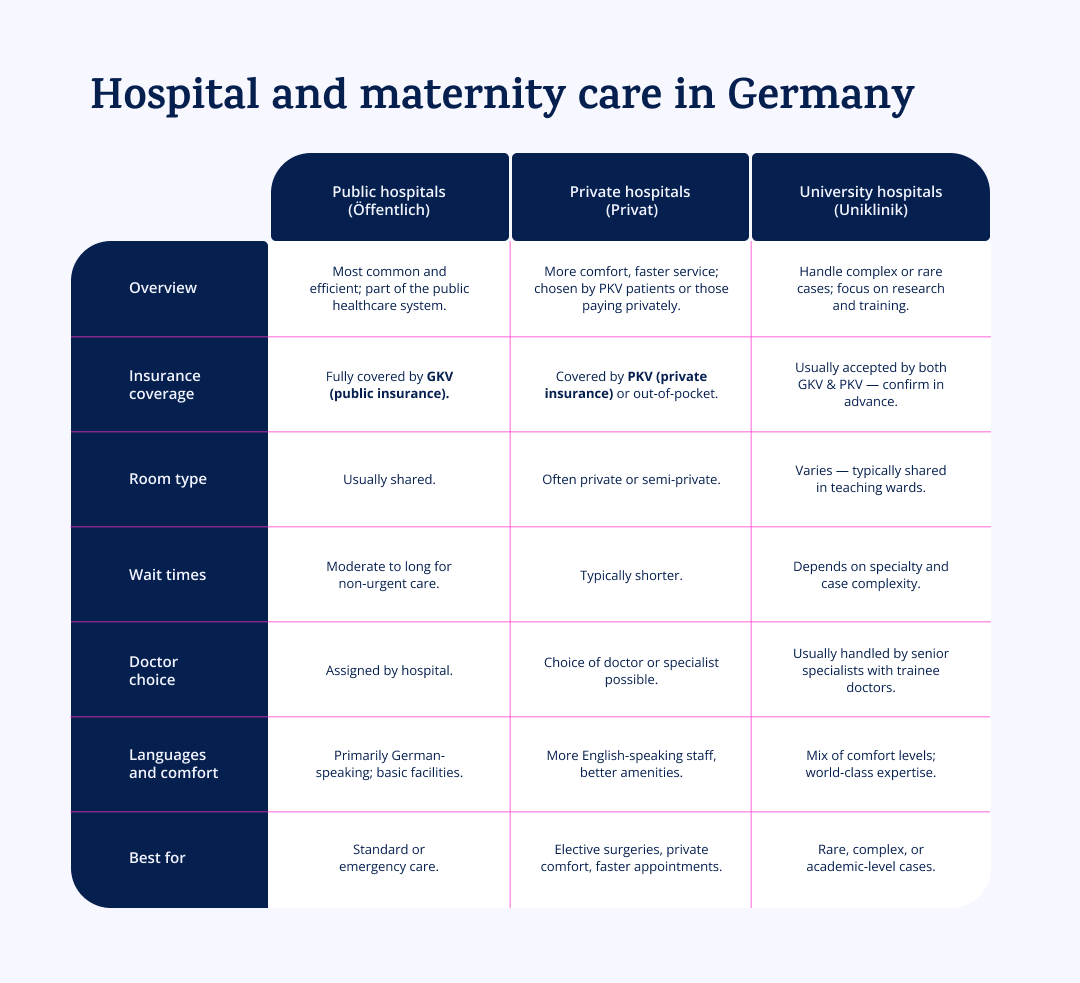
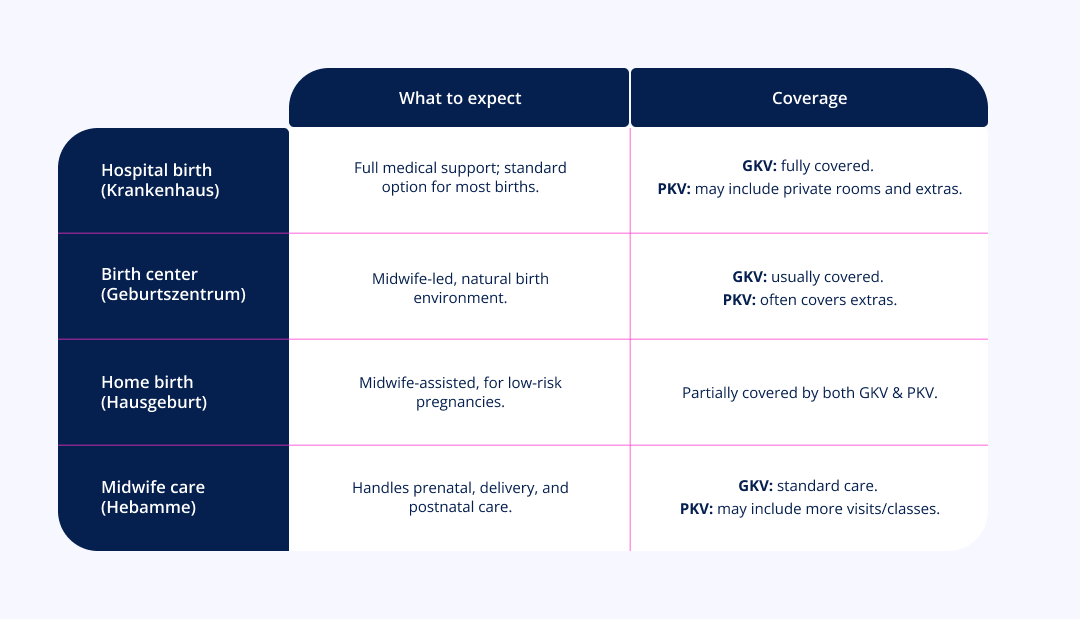
It’s important to note that all insurers cover the basics, but extras can vary widely. Always check the specific plan before making decisions.
| Vocabulary box | |
| die Hebamme | midwife |
| das Geburtszentrum | birth center |
| die Schwangerschaftsvorsorge | prenatal care |
| die Geburt | birth/delivery |
| die Nachsorge | postnatal care |
Preventive and routine care
Screenings and vaccinations
As a general principle, the German healthcare system prioritizes prevention over cure. Routine check-ups, vaccinations and wellness programs are encouraged and usually covered by insurance. The goal is to keep you healthy, catch potential issues early and even reward you for a healthy lifestyle.
Preventive check-ups covered by insurance include:
- General health check-ups (Vorsorgeuntersuchungen). These may take place annually for adults.
- Cancer screenings, including screenings for breast, cervical, colon, skin and prostate cancer. Covered screenings may vary depending on your age and risk factors.
- Vaccinations (Impfungen), including routine immunizations for adults and children. Seasonal flu shots, tetanus boosters and travel vaccines may also be covered.
- Dental check-ups (Zahnvorsorge) are usually covered twice a year under GKV.
GKV wellness perks:
- Some insurers refund costs for gym memberships, smoking cessation or yoga classes.
- Some even run incentive programs. If you can prove certain types of healthy behavior, they’ll refund a portion of your contributions or give bonus payments.
Yes, Germans love preventive check-ups. Think of it as an annual TÜV (car inspection) for your body, with a side of yoga and healthy snacks if you behave well.
| Vocabulary box | |
| die Vorsorgeuntersuchungen | preventive check-ups |
| die Impfungen | vaccinations |
| die Zahnvorsorge | dental check-ups |
| die Vorsorgeuntersuchung für Erwachsene | adult preventive exam |
Mental health
Mental-health services are covered under both GKV and PKV, but access varies.
- Public insurance: Long waits, especially for English-speaking therapists.
- Private insurance: Easier access, including to online platforms.
Online therapy options exist, but many platforms require private payment or private insurance, making them less accessible for GKV patients.
Tips for expats:
- Start searching early for English-speaking therapists (englischsprachige Psychotherapeut:innen), especially if you’re on public insurance.
- Consider private or online therapy if GKV options are limited, but check costs and insurance coverage first.
Even if it feels like waiting forever, a little patience (and maybe some currywurst) will get you there eventually.
Cultural health norms expats should know
German healthcare is structured, paperwork-heavy and strongly prevention-oriented. Expect forms, referrals and routine check-ups — the system rewards planning and compliance.
Key cultural norms
- Punctuality matters: Arrive on time for appointments; being late is frowned upon.
- Bureaucracy is still queen: Missing forms can cause delays, confusion or even denied treatment.
- Preventive mindset: Germans prioritize screenings, vaccinations and regular check-ups over reactive care.
- Documentation is crucial: Bring insurance cards, prescriptions and any prior medical records to avoid delays.
- Referrals and hierarchy: Specialists typically require a referral (Überweisung) from your GP (Hausarzt).
Sick leave (‘Krankschreibung’)
In Germany, if you’re too ill to work, your doctor can issue a sick note (Krankschreibung). Employers require this for extended absences, and it also determines how long you can stay home with pay.
Tips for expats
- Notify your employer promptly when you’re sick.
- Visit your GP (Hausarzt) early if you expect to be off more than three days.
- Keep a digital or paper copy of your Krankschreibung for your employer.
- Private insurance may have slightly different rules; check your policy.
| Vocabulary box | |
| die Krankschreibung | sick note/medical certificate |
| die Selbstbescheinigung | self-certification for short absences |
| die Krankheitstage | sick days |
Natural remedies and ‘Kur’ culture
Germany has a longstanding tradition of natural remedies and preventive therapies, often called the Kur-culture. Doctors may recommend:
- Spa treatments
- Herbal remedies
- Physiotherapy
- Other preventive therapies to support recovery and maintain health
Some of these treatments are even partially covered by GKV or through supplemental insurance plans, depending on your policy.
Germans often prefer gentle, preventive approaches before turning to medication. This cultural philosophy is deeply rooted in a shared sense of wellness, tradition and the notion that prevention now is better than a cure later.
Handy tips and resources for expats
Navigating German healthcare as an expat can feel daunting, but a few tips and resources make it much easier. From knowing emergency numbers to using digital health tools, preparation is key.
Traveling with medications
- Always bring original packaging and a doctor’s note (ärztliches Attest) for prescription medications.
- Some medicines that are over-the-counter in other countries may be restricted in Germany.
- Check official guidelines and online resources for allowed quantities and required documentation when crossing borders.
English-language help
- Forums like Internations offer advice and personal experiences for navigating the healthcare system.
- English-speaking helplines are available for mental-health support or medical questions.
- Apps and telemedicine platforms can connect you with English-speaking doctors. They may also offer translations or virtual consultations.
Digital health tools
- eHealth/elektronische Patientenakte are electronic patient records accessible via app for managing your medical history.
- Telemedicine platforms allow consultations online in English or German, saving time and travel.
- Many pharmacies and GP offices have apps to book appointments, refill prescriptions or access medical information.
FAQs
Can you choose between private and public insurance?
Yes, but only if you’re self-employed, your annual income exceeds the stated threshold, and/or you fall into certain student categories. For everyone else, the system decides.
Can you return to public insurance if you go private?
In most cases, no. Unless your circumstances change significantly and you’re under 55, private insurance is usually a one-way street.
Can I find an English-speaking therapist in Germany?
Yes. Many therapists in larger cities, private practices or online platforms offer sessions in English. Expats can search directories like Therapie.de, international expat networks or specialized English-language therapy groups to find suitable providers. Still, for GKV patients, patience is essential, and flexibility with timing or mode of therapy can help.
How many days off can I take without a sick note?
Typically, you can self-certify for up to three consecutive days. After that, your employer usually requires a Krankschreibung from a doctor to continue receiving sick pay (Entgeltfortzahlung). Some employers may request a note earlier, so it’s always worth checking your company’s policy.
How to feel prepared for your next doctor visit
Health insurance is mandatory in Germany. Whether you’re dealing with a GP, a specialized doctor or a pharmacy, expect to navigate a set of structured rules and processes. Knowing what to bring and how the system works will make your visits much smoother and less stressful.
It’s completely normal to feel a bit confused at first — even seasoned expats sometimes get tripped up by referrals, paperwork and different procedures at each practice. With clear insurance coverage and some language preparation, you can navigate appointments confidently and access the care you need.
Mastering a few key German phrases can make every step easier, from booking appointments to asking about prescriptions. With a bit of practice, you can transform what might feel like a bureaucratic maze into a manageable (even empowering) experience. Think of language as your secret pass to the system; the more fluent you feel, the more confident and independent your healthcare journey will be.

Begin your personal language journey
- Courses tailored to your learning needs
- Qualified teachers, small class sizes
- Expert-designed curriculum
- Live classes with native-level teachers


We do our best to keep this guide accurate and up to date, but rules, processes and information can change quickly.
Lingoda can’t take responsibility for any decisions made based on this content, so we recommend double-checking with official sources.








